
How to Support a Loved One Struggling with Depression (Without Losing Yourself in the Process)
Watching someone you love struggle with depression can be overwhelming, but your support can make a significant impact. Depression goes beyond occasional sadness—it’s a mental health condition that affects a person’s mood, energy, and daily functioning. To help, start by educating yourself about depression, listen without judgment, and offer practical help with day-to-day tasks. Encourage them to seek professional treatment and, most importantly, be patient and compassionate. Recovery takes time, but your presence can provide the comfort and stability they need.

Understanding Attachment Styles: How They Shape Relationships and Emotional Well-Being
Our attachment styles—secure, anxious, avoidant, or disorganized—play a key role in how we form and navigate relationships. Rooted in early experiences, these patterns influence intimacy, trust, and communication. Dive into the characteristics of each style and discover strategies to foster emotional growth and healthier bonds.

The Hidden Impact of Unresolved Trauma on Relationships
Unresolved trauma often lingers beneath the surface, shaping how we connect with others in ways we may not realize. From trust issues to emotional triggers, its effects on relationships can be profound. Explore how trauma manifests in our interactions and learn actionable steps to heal and rebuild stronger, healthier connections.

How to Break the Cycle of the Four Horsemen in Relationships
The Four Horsemen—criticism, contempt, defensiveness, and stonewalling—can wreak havoc on relationships if left unchecked. These negative communication patterns often lead to resentment and emotional disconnection. In this post, we explore how to recognize the Four Horsemen in your relationship and offer practical strategies to break the cycle, helping you rebuild trust, respect, and a deeper emotional connection.

“Daddy Issues" and Misplaced Responsibility
In our latest Pathways to Wellness blog post, Francesca Wehr, LCSW, delves into the complex dynamics of 'Daddy Issues' and misplaced responsibility. Discover how childhood experiences can shape adult relationships and learn effective strategies for healing and personal growth. Join us as we explore the impact of early parental relationships on mental health and provide actionable insights for a healthier, more fulfilling life.
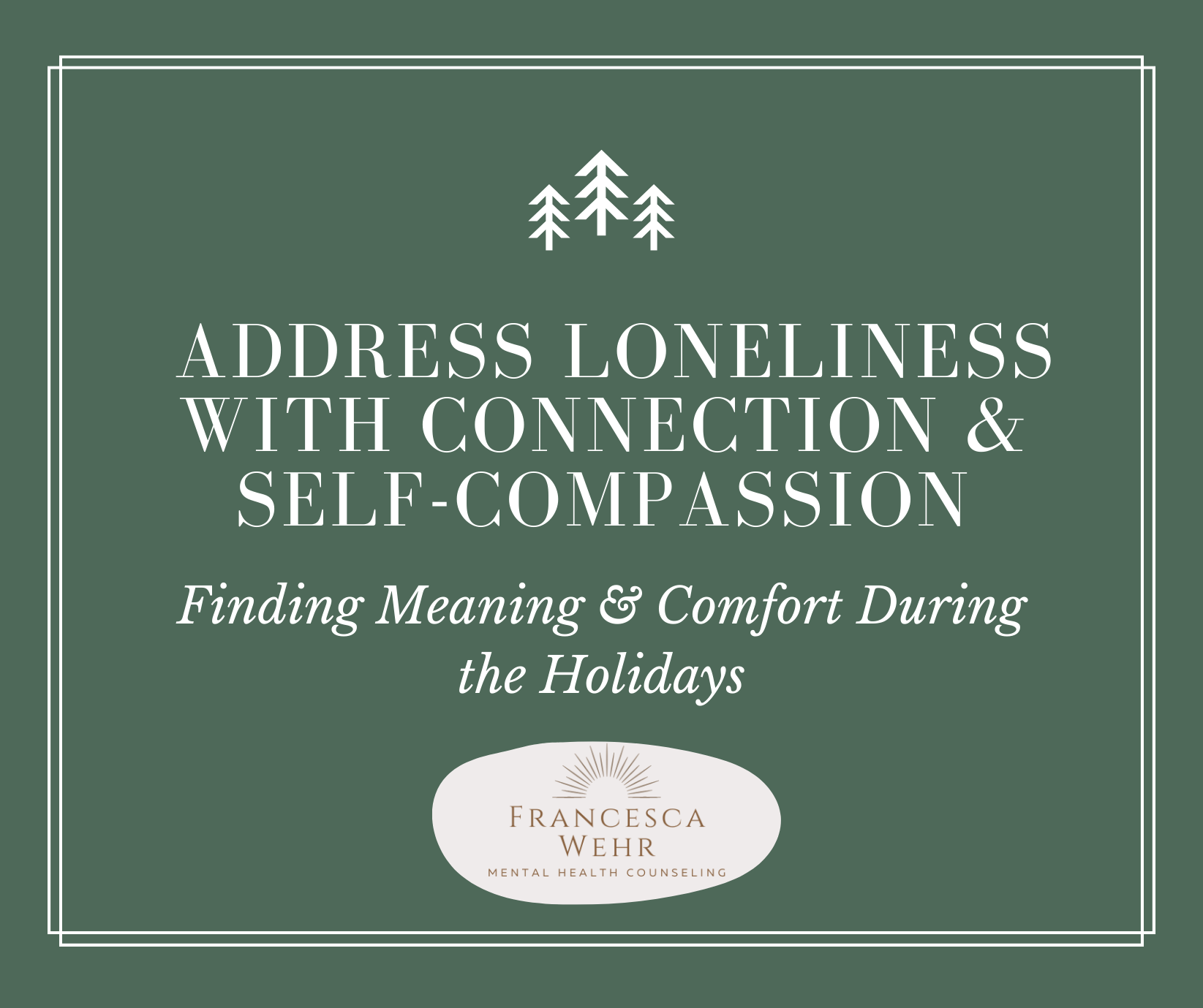
Address Loneliness with Connection & Self-Compassion: Finding Meaning & Comfort During the Holidays
The holidays can amplify feelings of loneliness, but you don’t have to face it alone. Explore ways to foster connection and practice self-compassion to find comfort and meaning during this season.
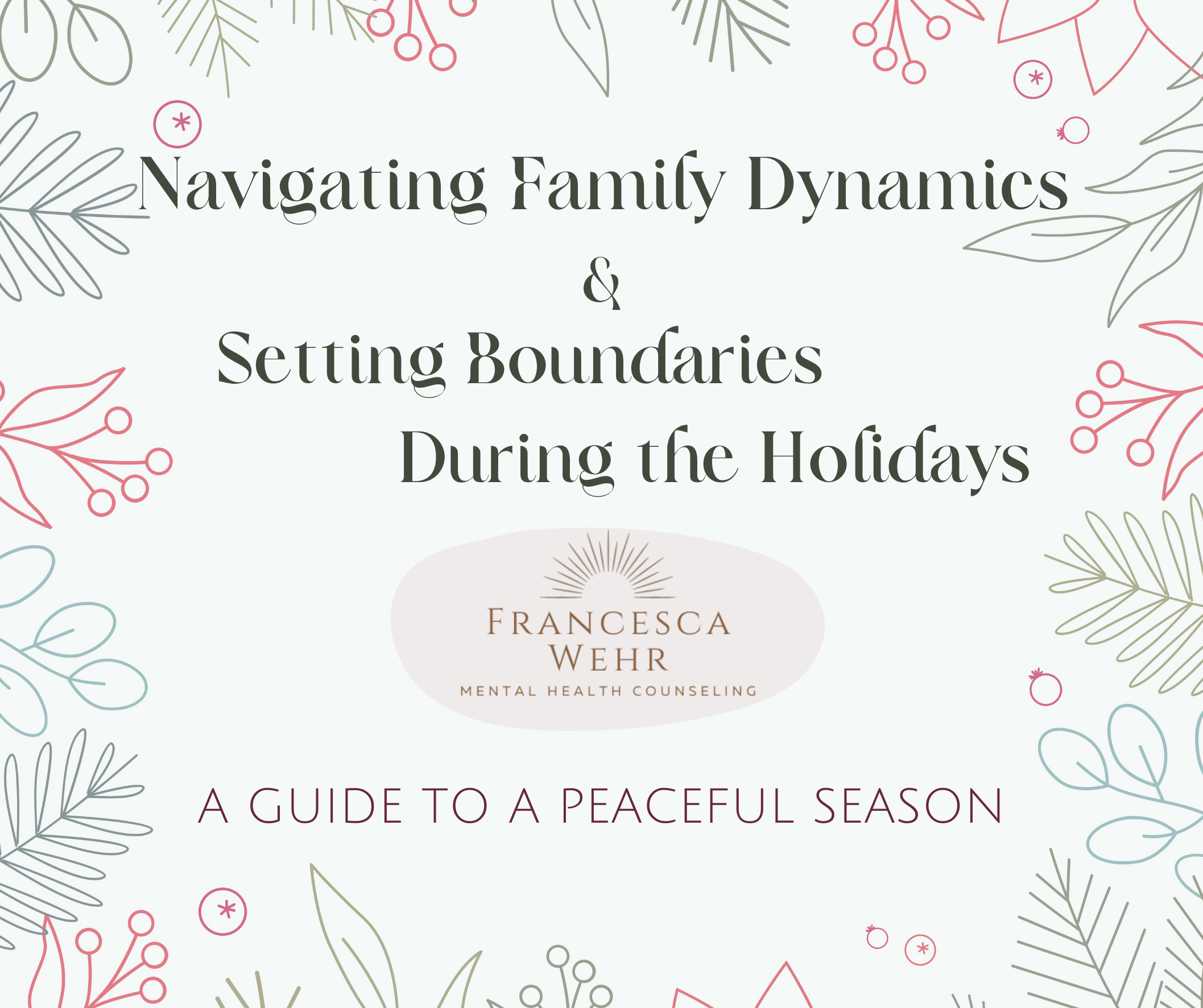
Navigating Family Dynamics & Setting Boundaries During the Holidays: A Guide to a Peaceful Season
Family gatherings can be joyful yet challenging. Learn how to set compassionate boundaries and protect your mental well-being during holiday events. Discover practical strategies to manage family dynamics with grace and ease.

A Comprehensive Guide to Maintaining Mental Well-being
The holiday season is often portrayed as a time of joy, but it can also bring stress, anxiety, and emotional turmoil. In our latest series on Pathways to Wellness: Insights from Francesca Wehr, LCSW, we explore practical strategies to maintain your mental well-being during this complex time. From managing family dynamics and financial stress to practicing self-care and mindfulness, this guide offers the tools you need to navigate the holidays with resilience and genuine joy. Stay tuned as we dive deeper into these essential topics, helping you transform the holidays into a season of meaningful connection and personal growth.

5 Signs Your Relationship Needs a Communication Tune-Up
Effective communication is the foundation of any healthy relationship, but even the best couples can experience breakdowns. If misunderstandings are frequent or tough conversations are being avoided, it might be time for a communication tune-up. In this post, we’ll cover five key signs that your relationship could benefit from better communication and offer actionable tips to help you reconnect with your partner.

Navigating Relationship Conflict: Managing Solvable, Perpetual, and Gridlocked Problems
Every relationship, no matter how strong, faces perpetual problems—recurring conflicts rooted in fundamental differences between partners. These issues, such as differences in personality, lifestyle, or values, can't always be solved, but they can be managed. In this post, we explore common examples of perpetual problems and offer strategies to handle them with empathy, humor, and acceptance, helping you build a stronger, healthier relationship despite the inevitable conflicts.
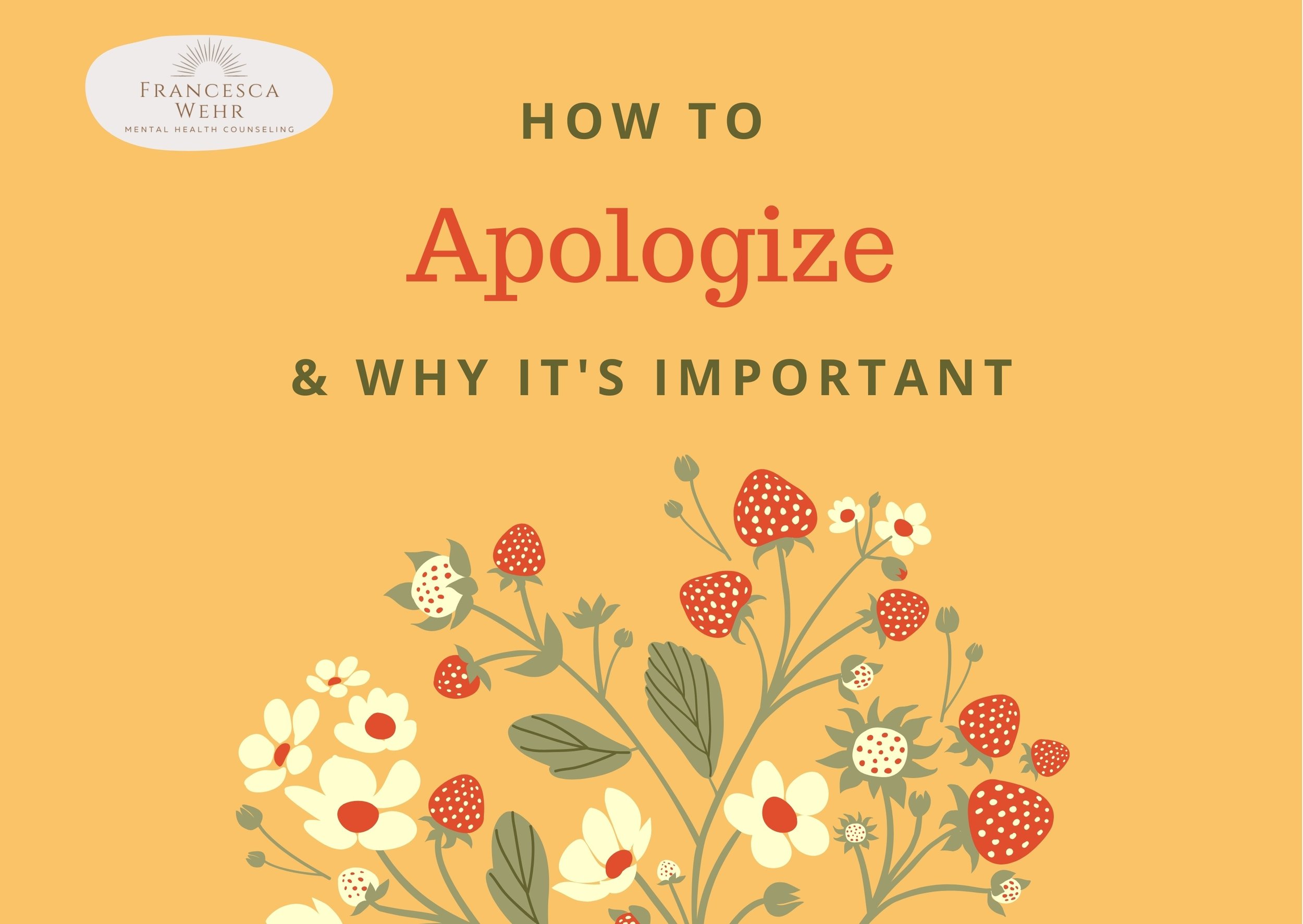
How to Apologize & Why It's Important
Mistakes are a natural part of life, but how we handle them can make all the difference in our relationships and personal growth. Francesca Wehr, LCSW, from Pathways to Wellness, explains the importance of a sincere apology and offers practical tips for making amends. Learn about the psychological impacts of apologizing and forgiving, and discover a guided self-reflection journal prompt to deepen your understanding of these essential skills. Embrace the power of an apology to heal, grow, and strengthen your connections with others.

Before You Speak, T.H.I.N.K.: The Power of Mindful Communication
The world of instant messaging and real-time conversations has undoubtedly made communication more accessible than ever. However, it has also made it all the more critical for us to pause and reflect on the words we use. The acronym T.H.I.N.K provides a simple yet potent framework for fostering mindful communication. It stands for Truth, Helpfulness, Inspiration, Necessity, and Kindness. This article delves into each component of the T.H.I.N.K method, illustrating how it can enhance interpersonal relationships and self-esteem.
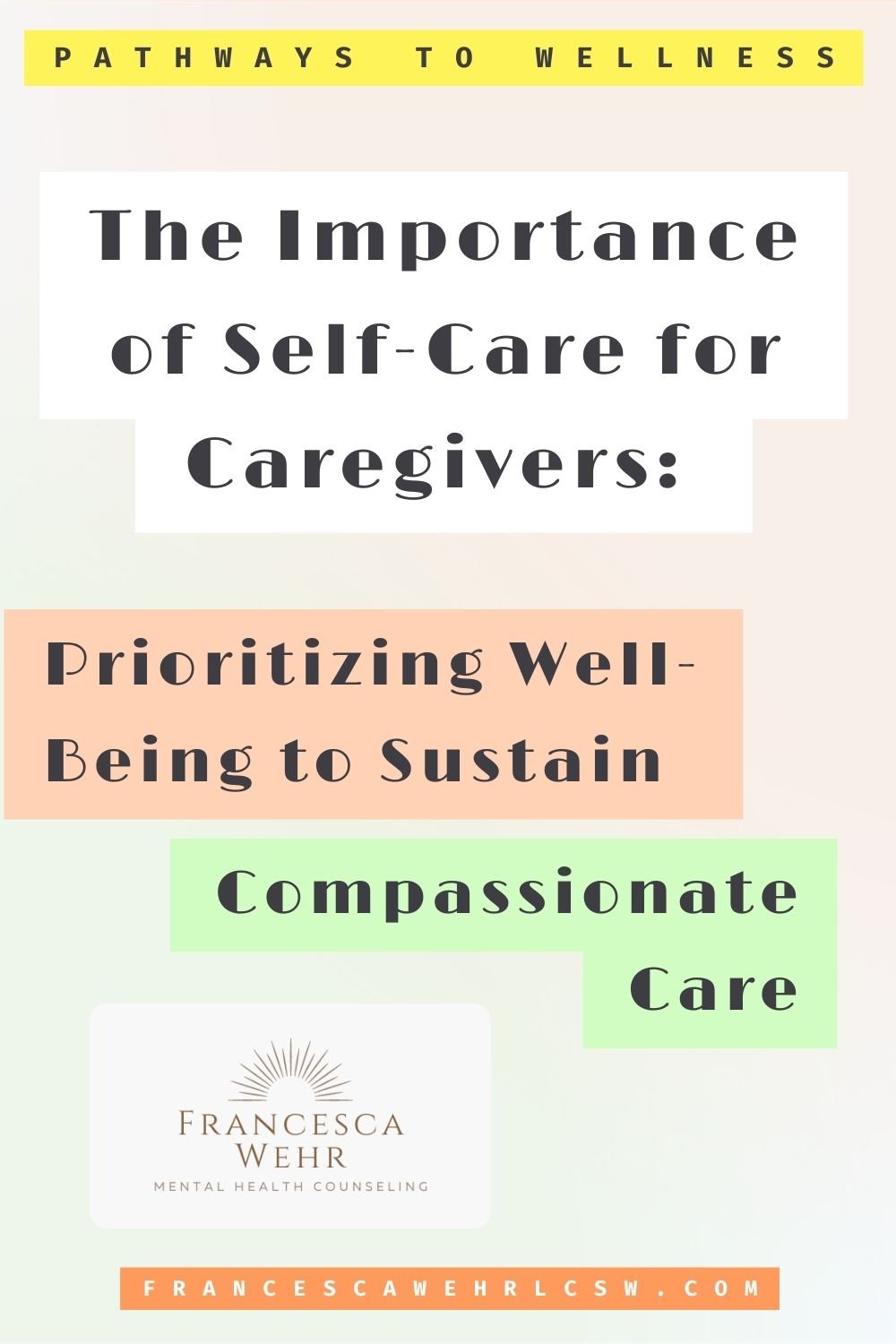
The Importance of Self-Care for Caregivers: Prioritizing Well-Being to Sustain Compassionate Care
Caregivers, whether professional or personal, play a vital role in supporting the well-being of others. However, the demanding nature of caregiving can take a toll on one's physical, emotional, and mental health. Self-care is essential for caregivers to maintain their own well-being and continue providing compassionate care for others. Pathways to Wellness: Insights from Francesca Wehr, LCSW Mental Health Counseling discusses the importance of self-care for caregivers and provides practical tips to incorporate self-care into daily routines.

Getting to Know Personality Disorders: The ABCs of Clusters A, B, and C
Personality disorders represent deeply ingrained, unhealthy patterns of behavior and thinking that significantly affect how an individual perceives the world and relates to others. They're grouped into three clusters - A, B, and C - each characterized by similar or overlapping traits. Pathways to Wellness: Insights from Francesca Wehr, LCSW Mental Health Counseling explores these clusters and the disorders that fall under them.

From Survival to Healing: Trauma, Attachment, and the Path to Emotional Resilience
In our latest addition to our “From Survival to Healing” trauma series, "Understanding Trauma, Attachment and Emotional Resilience," by Francesca Wehr, LCSW, delves into the intricate relationship between our earliest attachments and their lasting impact on our adult lives. Uncover the subtle signs of traumatic attachment and how they manifest in our relationships, often without our conscious awareness. Francesca provides enlightening insights into recognizing these patterns and embarking on a journey toward healing and emotional resilience. Join us on the Pathways to Wellness Blog for expert guidance on transforming traumatic attachments into sources of strength and healthier connections.
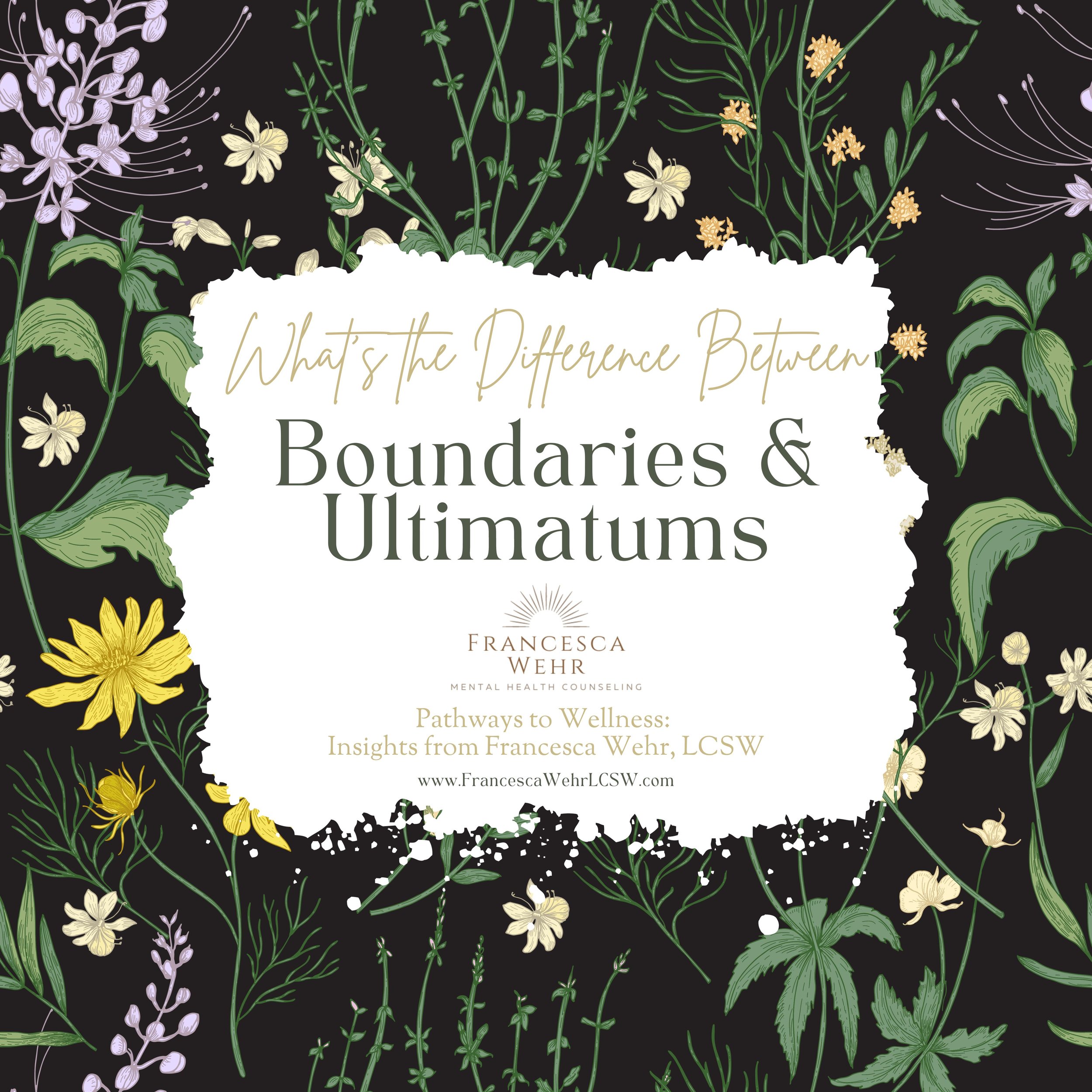
What’s the Difference Between a Boundary and an Ultimatum in Relationships?
The difference between boundaries and ultimatums in relationships can often be a cause for confusion. However, understanding this distinction is essential in fostering healthy connections with others. In this blog post, we will delve into the characteristics of both and examine the core differences.
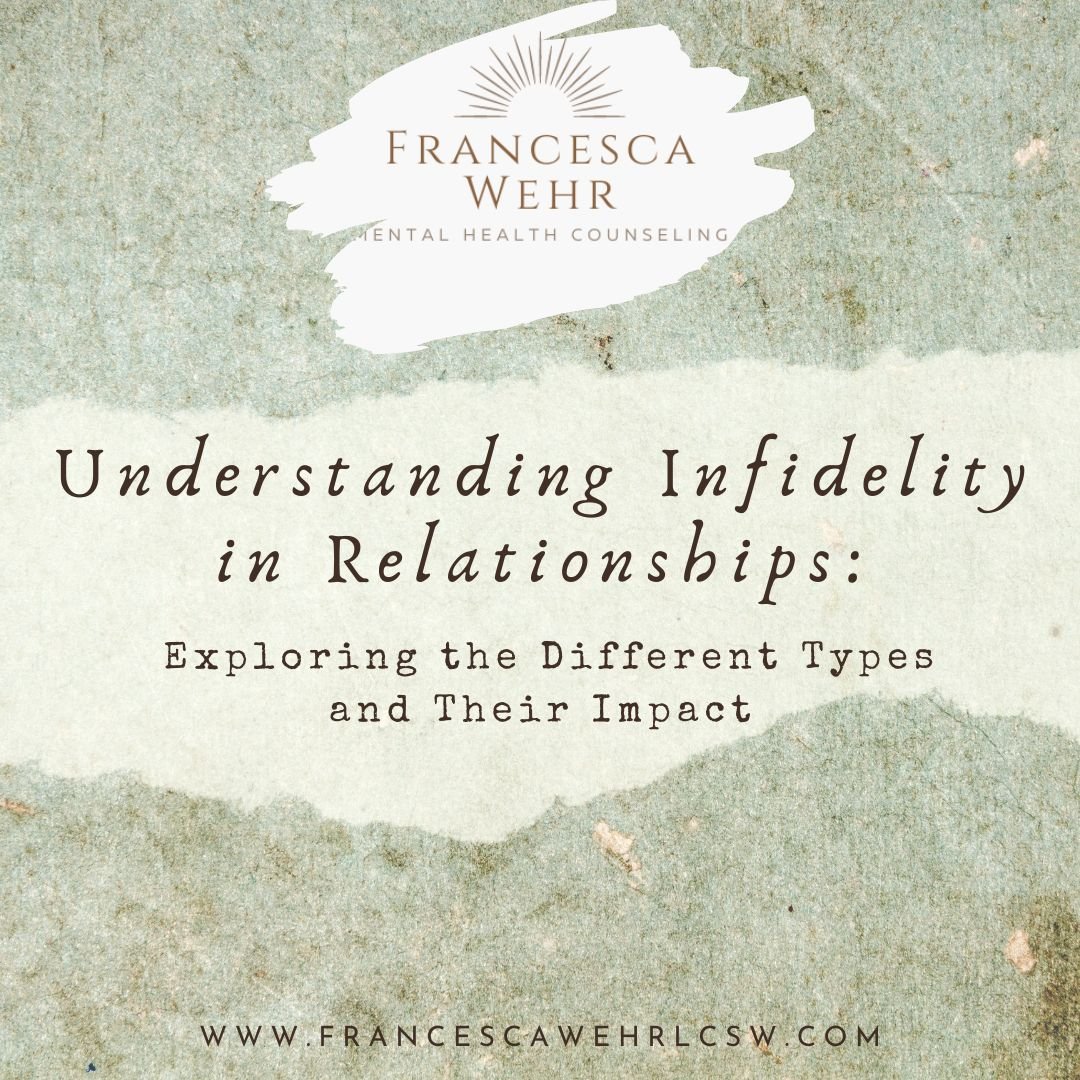
Understanding Infidelity in Relationships: Exploring the Different Types and Their Impact
Infidelity, or the act of being unfaithful in a committed relationship, is a complex and emotionally charged issue. It can manifest in various forms, each with its unique challenges and consequences. Pathways to Wellness: Insights from Francesca Wehr, LCSW Mental Health Counseling explores the different types of infidelity – physical, emotional, cyber, object, and financial – and provides examples of each to help deepen our understanding of this sensitive topic.
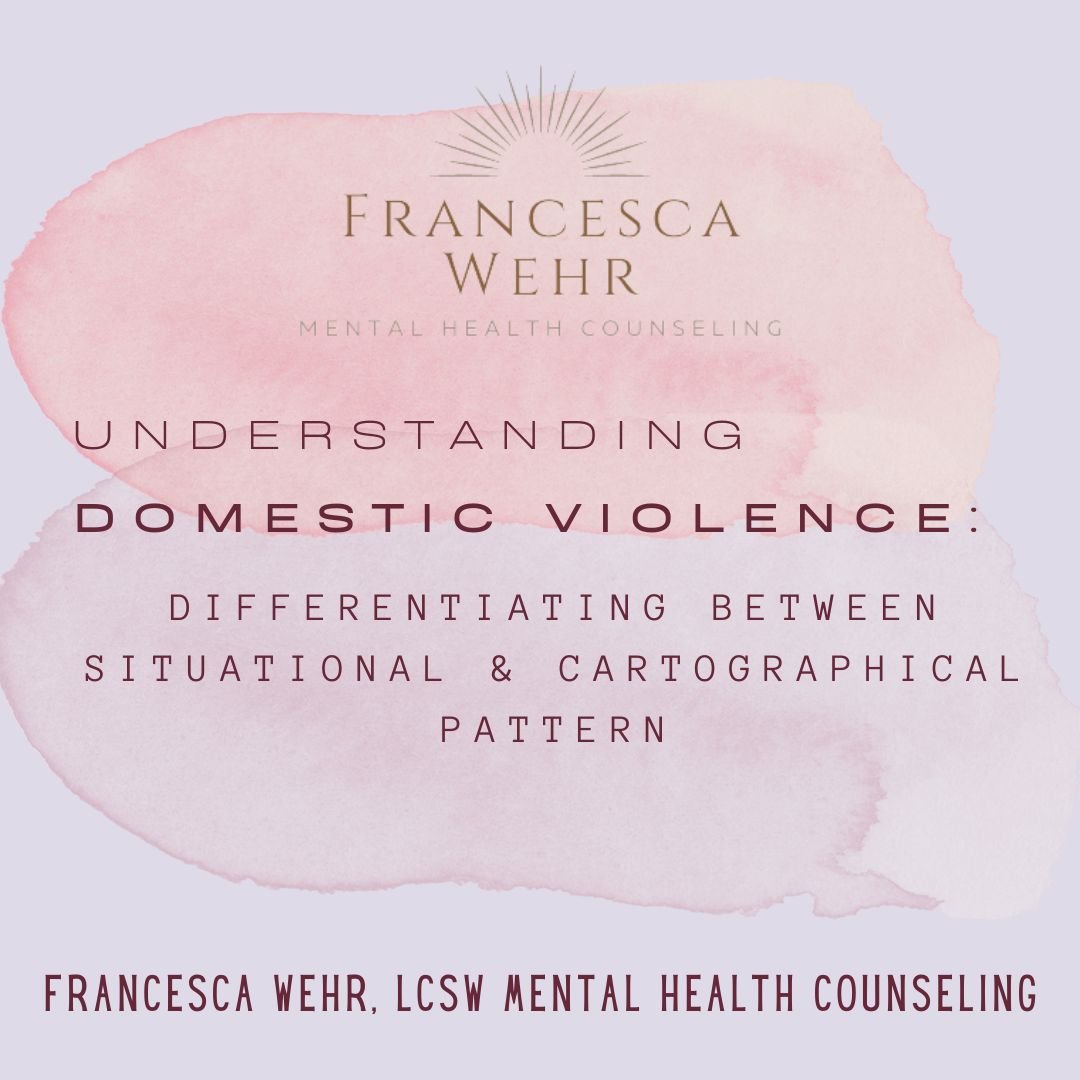
Understanding Domestic Violence: Differentiating Between Situational and Cartographical Pattern
Domestic violence is a complex and pervasive issue that affects millions of people worldwide. It can manifest in various forms and patterns, making it essential to understand its nuances to effectively address and prevent it. Francesca Wehr, LCSW Mental Health Counseling discusses two primary types of domestic violence: situational and cartographical. By recognizing these patterns and understanding their differences, we can better support victims and work towards a safer, more compassionate society.
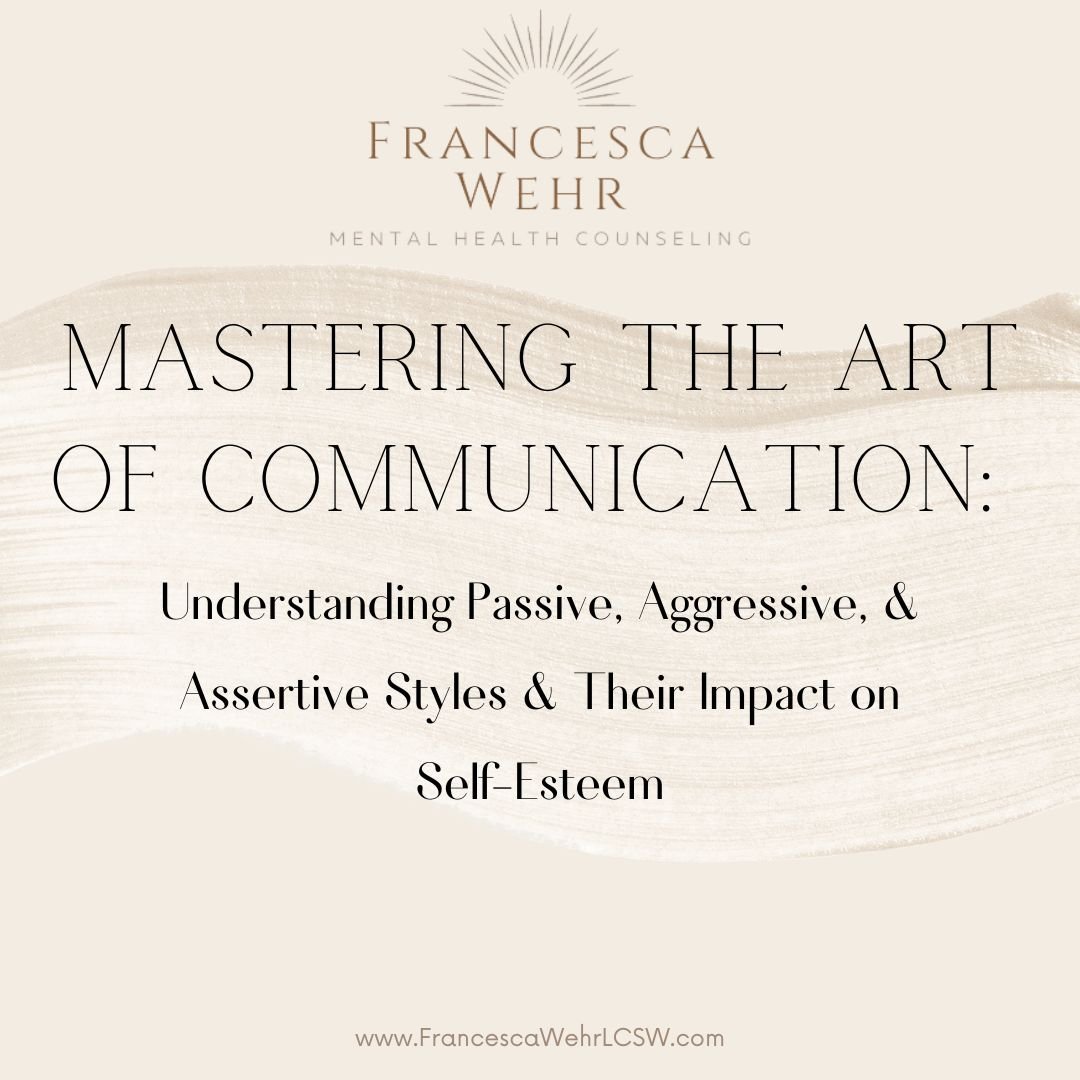
The Power of Assertive Communication in Promoting Positive Mental Health
Effective communication is an essential skill for building and maintaining healthy relationships, as well as for personal growth and well-being. There are three primary communication styles: passive, aggressive, and assertive. Francesca Wehr, LCSW Mental Health Counseling discusses these styles, their impact on self-esteem, and the importance of assertive communication in honoring our feelings, wants, needs, and desires.

Mastering DEAR MAN: A DBT Interpersonal Relationship Skill for Effective Communication
Learn how to improve communication and resolve conflicts using the DEAR MAN technique from Dialectical Behavior Therapy (DBT). Discover step-by-step strategies to express your needs assertively, strengthen relationships, and enhance emotional well-being.




